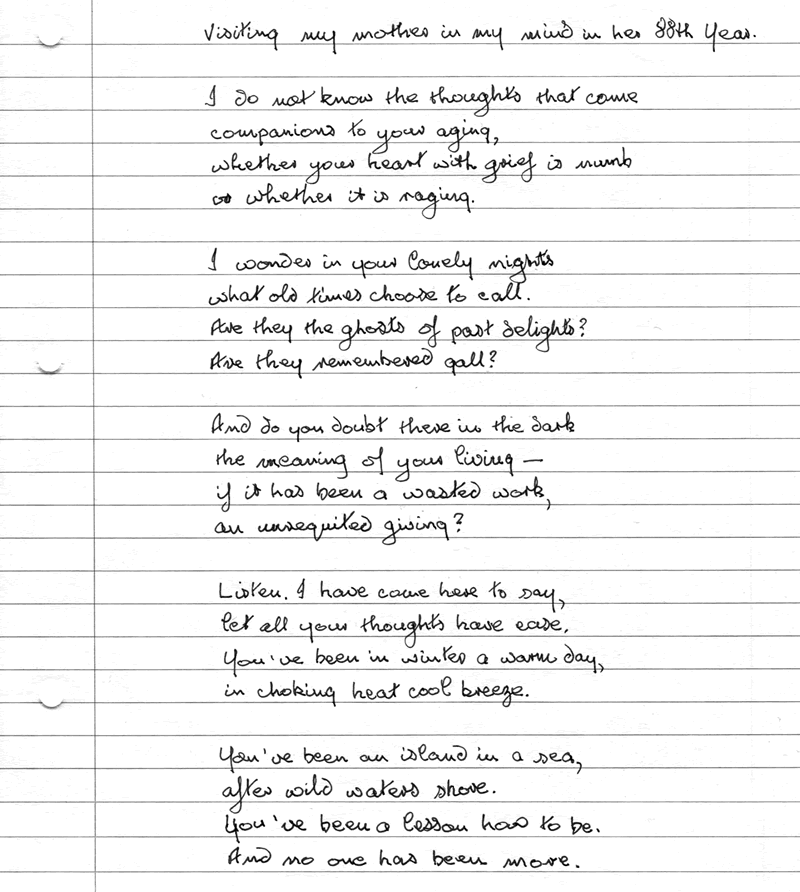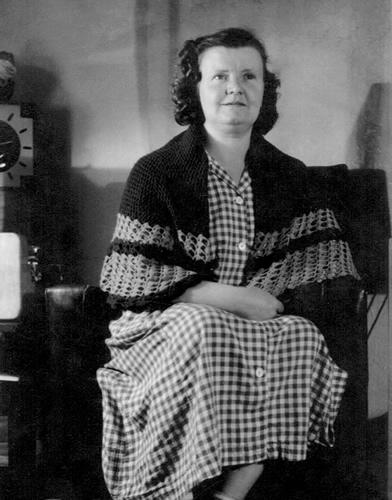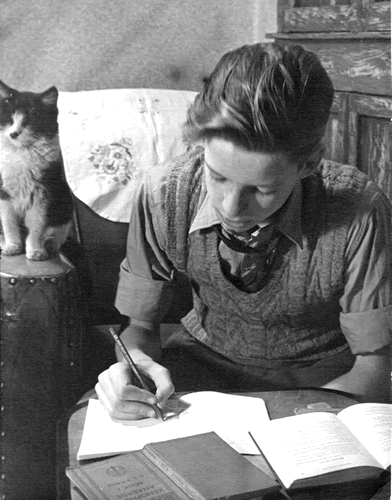
| Suffragettes for Decency 28th April 2013 |
During the time of the First World War, there was a policeman who stood at the Cross in Kilmarnock pretty well every Sunday. He may have been relieved occasionally but it was usually the same man. Maybe he just liked that duty. The policeman wasn’t to know it but the girls were walking every Sunday from their parents’ house in High Street to the part of Kilmarnock they called the Saunbed, where their paternal grandparents lived. Eventually, having observed them walking many times across that open space at the centre of the town like a discreet parade of promising womanhood, the policeman turned to a bystander and spoke. He said he liked to watch them pass and he didn’t know who they were but they were lovely and a credit to their parents. The bystander said they were the Montgomery lassies. They were Jean, Helen and Mary. Afterwards, the bystander told the girls’ grandfather what the policeman had said. The grandfather took the remark as if it were a knighthood. He was never reluctant to repeat it and it passed into family legend – that repeated moment of three small girls walking. I like to think now of them walking always in sunlight but, this being Scotland, no doubt it rained more than once. Still, rain or shine, they were their own good weather. Those three girls didn’t walk in the sun for long. The adult world foreclosed on their childhood fast. The promises that must have seemed to be shimmering in the air around them contracted to the musty dimness of a mill, where they all started working young, at least one of them at the age of 12. There was no choice. Their father, who had been a soldier in the Boer War and then in the War To End All Wars, had been gassed at Passchendaele and invalided out on a minimal pension. He was the one who meticulously performed the Sunday ritual of the brushing of the hair. He was to spend much of his remaining time sitting at an open window, catching individual breaths like butterflies, until he died. The girls’ lives were to be hard – work in the mill, strikes lived through (two of them married miners), another world war that didn’t end wars, a balancing of budgets to the penny, the prospect of never knowing from one week to the next how they were to manage. Maybe Jean’s life was hardest of all. Her daughter, born handicapped, was destined never to walk. All of her family, husband, son and daughter, died long before she did. But the quality of those girls’ lives was not to be measured only by the harshness of the circumstances. Many women of their generation had lives as hard or harder. What defined their lives, as it did the lives of so many of those other women, was the spirit with which they met their circumstances. The family which gave them poverty also gave them simultaneously the courage to transmute it. They had a proper pride in themselves. They had a mother who was a cook of endless inventiveness and she also liked a drink. They had a father one of them would later describe unequivocally as ‘the warmest man in the world’. They had two brothers a lot of people would have gone a day’s walk to talk to, one of them for his quiet wisdom, the other for his ability to make you laugh. Most of all, they had values that defied poverty to define them. Their lives could be seen as an accusation against the society that imposed such circumstances on them, and they were certainly that. But it would be wrong for well-meaning social reformers to reduce them to mere ciphers of social injustice. They had lives richly valid in themselves, as meaningful as any which affluence can give us. These women should not be patronised by contemporary armchair liberals. They may not have been politically active. Probably the most overtly political thing any of them did was in her youth to march in support of Bob Climie, the local Labour Party candidate. But they were like suffragettes for decency. They would have taken on charging horses rather than give up the values they believed in. They taught calamity to behave itself. Besides being an incidental indictment of the society they grew up in, they were also examples of how people, given unimpressive materials to work with, can make of a life a small monument to the human spirit, like a cathedral made out of matches. One of those girls, Helen, would have four children, of whom I was one. Like so many women of her generation, she had formidable strength of character and endurance, living until she was ninety-five. Apparently, towards the end of her life she had a nightly ritual. Settled in her bed, she would read the letters and cards she had received from her extended family, a small store of love she had inspired. She was reading, I suppose, the meaning of her life. It was her version of a miser’s hoard, what she had instead of money. One of the cards contained a small poem I had written for her, for which the only merit I would claim is that I meant it.
|

|
| Visting my mother in my mind in her 88th year (text) |
|

| e-mail: william.mcilvanney@personaldispatches.com © William McIlvanney |

